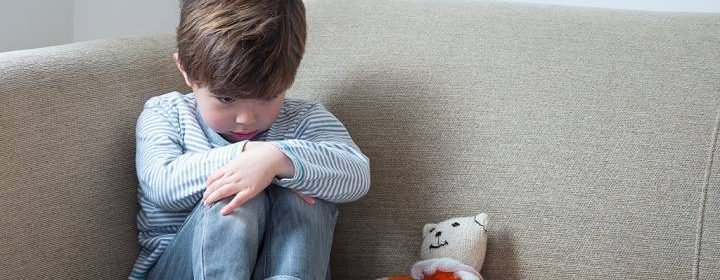How do you know if your child is being sexually abused? Here are the warning signs

NOTE: This article contains graphic information about sexual abuse that may upset some readers. Please read at your own discretion.
The allegations that pop star Michael Jackson sexually abused young boys as outlined in new documentary Leaving Neverland is sparking larger conversations about childhood abuse, and, in particular, why it often takes survivors years to speak out.
In the two-part HBO doc, subjects Wade Robson and James Safechuck say that Jackson started sexually abusing them when they were young boys, and that the molestation happened “hundreds” of times. Despite the years of alleged abuse, both Robson 36, and Safechuck, 40, initially kept what was going on a secret, and even previously denied that Jackson had ever touched them inappropriately.
The men say they are now speaking out about their experiences as they are fathers themselves, and believe there are others who were abused by the star. In an interview with CBS This Morning, Safechuck said he previously “had no expectations of ever telling anyone” but his mindset changed after Jackson died in 2009.
(Jackson’s family denies all allegations and his estate is suing HBO.)
According to Dr. Jillian Roberts a child psychologist and associate professor at the University of Victoria, it’s not uncommon for survivors to keep childhood sexual abuse a secret.
“I believe that many, many people are abused without telling anyone,” Roberts told Global News. “Sexual abuse still has a stigma in our society.”
Because of the painful nature of abuse, Roberts says there are important warning signs adults should pay attention to that may indicate a child is in danger. “A child who is experiencing sexual abuse would likely show you some red flags in their behaviour,” she explained.
“[Their] behaviour can quickly change.”
Differences in behaviour
According to RAINN, child sexual abuse can include sexual contact with a child, but also includes other behaviour, “like exposing oneself, sharing obscene images, or taking inappropriate photos or videos of a child.”
The organization states sexual abuse not only has an immediate impact on a child, but also their development, and can affect them into adulthood. Because sexual abuse can be very traumatizing, Roberts says that if a child is being harmed, their demenour may change.
“A child may become sullen and withdrawn or they may act out,” she explained.
“The child may [also] recreate the trauma in their play, and so you might see sexual themes in their play or the child might be trying to ‘play’ with another child in an inappropriate way.”
Other times, Roberts says a child will become preoccupied with their genital area.
The age of a child also affects how they may react to abuse.
“The young child will often act out the trauma in play situations. A tween may begin experimenting sexually,” Roberts said. “An older child may also turn to drugs or they may self-harm as a way to process the pain.”
Physical warning signs
According to the Ontario Association of Children’s Aids Societies, if a child is being sexually abused, there are also often physical indicators. These include frequent sore throats or urinary infections, bedwetting or soiling the bed, thumb-sucking, changes in appetite and disturbed sleep.
A child who is being abused may also refuse to change out of their clothes for baths, for example, and may not want to be left alone with certain adults. In some cases, there may also be trauma or soreness in the child’s genital area.
Why kids may keep the abuse a secret
Like Roberts pointed out, children often keep sexual abuse a secret — even into their adulthood.
“People often feel like it is easier for them to simply remain quiet,” she explained. “Children have the added burden of worrying about their parent’s reaction. Often, children worry that they have done something wrong and that they will get into trouble if anyone finds out.”
According to Robson and Safechuck, Jackson frequently told them they would be in trouble if their parents or others found out about their sexual relationship. Robson, who once defended Jackson in court during his 2005 child molestation case, told CBS that the singer “trained” him on how to deny the abuse.
“Michael’s training of me to testify began the first night that he started abusing me, in the sense that you know, that right away, after the first kind of experience of sexual abuse, he started telling me that if anybody else ever finds out, we’ll both go to jail, both of our lives would be over,” he told the outlet.
How to help a child
Even if a child initially denies abuse, if an adult is concerned a child is in danger, Roberts says it’s important for them to get support.
“I would advise [adults] to reach out to Children’s Aid, or to the equivalent ministry in their province,” Roberts said. “An experienced social worker can [also] provide a great deal of advice.”
The Ontario Association of Children’s Aids Societies echoes this advice, and says that adults should report any suspected abuse to their local Children’s Aid Society. Letting authorities know of abuse can help protect a child, as well as other children who have also be experiencing abuse.
Even when survivors of child sexual abuse become adults, speaking about their experiences can be hard. As Robson said in Leaving Neverland: “I want to be able to speak the truth as loud as I had to speak the lie for so long.”
[email protected]
Follow @lolahensley
Source: Read Full Article


